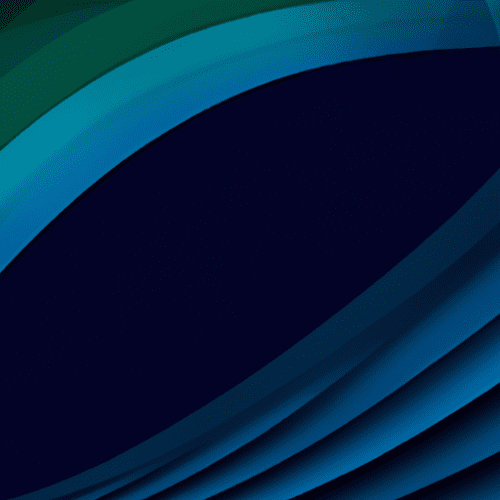
In today's rapidly-evolving digital landscape, the intersection of networks and blockchain technology is transforming countless industries. One particularly impactful field is medical translation-services">translation and life sciences translation services, where accuracy and security are paramount. As healthcare moves towards a more globalized, interconnected future, the need for precise, fast, and trustworthy translation solutions becomes even more pressing. In this blog post, we’ll explore how modern network architectures and blockchain-backed systems are enhancing medical translation services, streamlining clinical research, protecting sensitive data, and ensuring that innovations in the life sciences reach people everywhere.
Networks at the Heart of Medical Communication
Globalization has turned the world into a smaller place, especially in healthcare. Multinational clinical trials, international patient care, and collaborative research have created an immense demand for effective multilingual communication. At the center of this transformation are robust social networks and digital platforms, which facilitate fast data exchange and collaborative translation.
In the context of medical translation, networks aren’t just about social connections — they include vast ecosystems of medical professionals, translators, technology providers, and regulatory authorities. These interconnected nodes allow patient records, consent forms, clinical trial protocols, and medical device instructions to be shared, reviewed, and translated securely and efficiently. Thanks to advanced networking, remote interpreting and document localization become seamless, ensuring healthcare providers can deliver culturally relevant care across borders.
Blockchain Technology: Building Trust in Medical Translation
While traditional networks enable fast data movement, they sometimes struggle with issues like version control, audit trails, and data security — all critical for life sciences translation services. Enter blockchain technology: a decentralized, tamper-resistant ledger system that is revolutionizing how sensitive medical information is managed, tracked, and verified.
Blockchain brings several distinct advantages to medical translation:
- Immutable Audit Trails: Every medical document translated via a blockchain-based system comes with a verifiable history. This means clinical trial protocols, regulatory submissions, and patient records can be tracked from submission through every translation and review, ensuring nothing is lost in the process or in translation.
- Secure Data Sharing: Medical records often contain highly personal details subject to privacy laws like HIPAA and GDPR. Blockchain encrypts these documents and ensures only authorized persons—translators, medical professionals, or regulatory officials—can access them, significantly reducing data breach risks.
- Smart Contracts: Blockchain enables the automation of complex translation workflows using smart contracts. For instance, upon successful translation and independent review, smart contracts can automatically trigger milestone payments or release documents to the next review stage, minimizing administrative delay and human error.
- Transparency for Regulators: Life sciences translation services supporting new drug applications or device certifications benefit from transparent processes. Auditors and regulators can quickly review document history, translation accuracy, and compliance checks via public or permissioned blockchain explorers.
These functionalities are ushering in a new era of confidence for healthcare companies, contract research organizations, and hospitals that rely on flawless multilingual communications.
Enhancing Blockchain Explorers for Translation Workflows
If you’ve ever tracked a cryptocurrency transaction through a blockchain explorer, the power of public, verifiable ledgers is clear. Imagine applying this same transparency to translation processes in the life sciences. Today, innovative translation service providers are integrating blockchain explorers to monitor project timelines, assignment history, and document revisions.
For medical translation projects, especially those involving regulatory submissions, clinical studies, or healthcare product launches, such transparency ensures compliance and accuracy at every step. End clients monitor their projects’ statuses in real time, translation agencies can streamline project management, and translators maintain a clear record of their contributions. This reduces disputes and accelerates timelines — critical in a sector where speedy regulatory approvals can save lives.
Life Sciences Translation Services: Meeting Specialty Needs
Life sciences translation services stand apart from general translation by their stringent demands for accuracy, technical knowledge, and regulatory compliance. Whether translating molecular biology research, genomics reports, investigational new drug filings, or patient-facing materials, precision is non-negotiable. Any error or ambiguity can carry serious consequences for patient safety, research validity, or product approval.
Through a combination of expert linguists, subject matter experts, and advanced networking and blockchain technologies, providers can now deliver faster, more secure, and more reliable translations. These enhancements allow pharmaceutical companies, biotech startups, and healthcare institutions to confidently expand into new markets and collaborate across continents, assured that their sensitive data and intellectual property are protected every step of the way.
Innovations in medical translation services also support telemedicine, digital health apps, wearable device manufacturers, and medtech startups in reaching diverse, global populations. Leveraging blockchain’s traceability and networked platforms’ speed, these services provide accurate, regulatory-compliant translations that empower better health outcomes.
Empowering the Future of Medical Translation
The blockchain and crypto community have long championed transparency and decentralization—principles directly benefiting medical translation operations. Many blockchain backers and startups are actively investing in decentralized platforms for handling medical data, document localization, and translation memory management. Their goal? To democratize access, lower costs, and boost reliability for clients across the life sciences spectrum.
These investments drive the development of tools that automate linguist assignments, facilitate collaborative translation, and secure patient data from the ground up. The result is a vibrant ecosystem where blockchain-powered translation providers can serve the sophisticated needs of research hubs, non-profit medical missions, and cross-border healthcare providers alike.
Moreover, clients can verify translation quality, regulatory compliance, and project timelines transparently—helping them choose providers with the strongest track records for accuracy and reliability.
A Networked, Secured, and Connected Future
As global healthcare grows increasingly complex and interconnected, the need for precise, secure, and efficient translation services has never been greater. Networks enable seamless communication, while blockchain technology introduces a new standard for trust, documentation, and data security. The integration of blockchain explorers and smart contracts into translation workflows is making life sciences translation services more reliable and transparent than ever.
For healthcare providers, pharmaceutical companies, and clinical research organizations, adopting these blockchain-backed systems means fewer errors, lower administrative costs, and improved global reach. By harnessing these technologies, the life sciences sector is better equipped to deliver groundbreaking treatments, strengthen research collaborations, and enhance patient care, no matter where language barriers once stood.
To discover how these advancements are already transforming the industry and to find expert support for your own projects, visit life sciences translation services specialists with proven networks and blockchain-powered solutions.
Recent Posts

What Blockchain Backers Know A...

How Editing and Proofreading T...

AI Tools Revealing New Trends ...

Blockchain et l’avenir de la...

Cómo cada participante mantie...

Understanding How Decentralize...
Share it.
Categories
Links
© Copyright 2022 Salilkan Here


